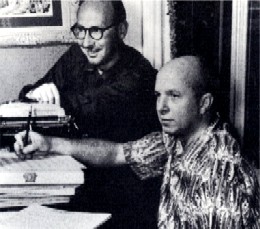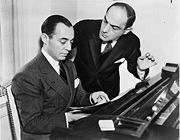In her book, Why We Love, Helen Fisher describes the roles of the neurochemicals dopamine, norepinephrine, and serotonin in impelling us toward relationship, and the chemicals vasopressin and oxytocin in maintaining our attachment bonds. Dopamine, Fisher reports, helps us to choose our partners from among the many potential partners available. It also focuses us on the pursuit of our sweetheart, energizes our striving to win love, and correlates with rising levels of testosterone, “the hormone of sexual desire” in both men and women; norepinephrine contributes to the feelings of romantic love such as “exhilaration, excessive energy, sleeplessness, and loss of appetite”; and serotonin is associated with the obsessiveness that characterizes infatuation and the early stages of romantic love. Vasopressin, in men, and oxytocin, in women, contribute to the less dramatic but more durable processes of bonding and attachment.
There are few human experiences so powerful as the feelings associated with falling in love. If there were, then probably most of the poetry, stories, books, tv, movies, and songs in the history of the world would never have been written. The artistic attempts at understanding these emotions give us many models, metaphors and pieces of advice. “Surrender,” “fight,” “love is grand,” “love is a tender trap,” it’s “all you need,” it’s “an illusion,” it’s a “burning deep inside,” it’s “witchcraft,” and on and on.
“I’m wild again, beguiled again
Many of us, demonstrating the triumph of denial over experience, believe we can marry for love, as in, “they fell in love and lived happily ever after.” Way too often it’s, “They fell in love and stayed together until they fell out of love and then they limped along for a while making each other miserable until they split.” This is almost inevitable if the “love” we’re talking about is completely limited to the heady love-rush feeling that gets us in, and neglects the action verb, “love,” that implies a set of values and attitudes and actions that support the feelings of love. Experience, and now, even science, tell us that the love-rush can’t be sustained. Now what do we do? Flirt, date, date for a long time, be friends, have sex, have a lot of sex, co-habitate, meet the family, accompany each other to social events, take vacations together, but marry??? Why?
I look forward to hearing readers’ ideas about the arguments for (or against, or for with qualifications) marriage (as opposed to a number of alternative arrangements that have become quite socially acceptable. Hit the ‘comment’ link below, or use the ‘Leave a Reply’ form, and share your thoughts.)



2 Responses to Do Love and Marriage really go together like a Horse and Carriage?